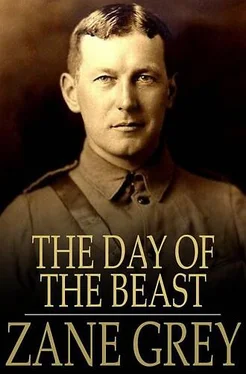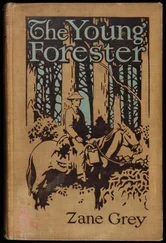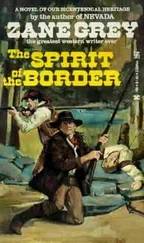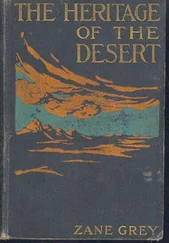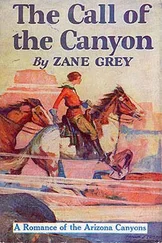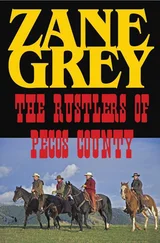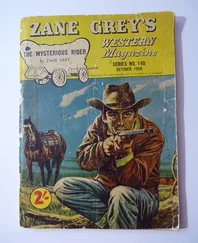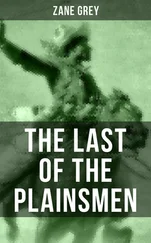Zane Grey - The Day of the Beast
Здесь есть возможность читать онлайн «Zane Grey - The Day of the Beast» весь текст электронной книги совершенно бесплатно (целиком полную версию без сокращений). В некоторых случаях можно слушать аудио, скачать через торрент в формате fb2 и присутствует краткое содержание. Жанр: Старинная литература. Описание произведения, (предисловие) а так же отзывы посетителей доступны на портале библиотеки ЛибКат.
- Название:The Day of the Beast
- Автор:
- Жанр:
- Год:неизвестен
- ISBN:нет данных
- Рейтинг книги:4 / 5. Голосов: 1
-
Избранное:Добавить в избранное
- Отзывы:
-
Ваша оценка:
- 80
- 1
- 2
- 3
- 4
- 5
The Day of the Beast: краткое содержание, описание и аннотация
Предлагаем к чтению аннотацию, описание, краткое содержание или предисловие (зависит от того, что написал сам автор книги «The Day of the Beast»). Если вы не нашли необходимую информацию о книге — напишите в комментариях, мы постараемся отыскать её.
The Day of the Beast — читать онлайн бесплатно полную книгу (весь текст) целиком
Ниже представлен текст книги, разбитый по страницам. Система сохранения места последней прочитанной страницы, позволяет с удобством читать онлайн бесплатно книгу «The Day of the Beast», без необходимости каждый раз заново искать на чём Вы остановились. Поставьте закладку, и сможете в любой момент перейти на страницу, на которой закончили чтение.
Интервал:
Закладка:
And for the first and the last time Lane wept for himself, pitifully as a child lost and helpless, as a strong man facing irreparable loss, as a boy who had dreamed beautiful dreams, who had loved and given and trusted, who had suffered insupportable agonies of body and soul, who had fought like a lion for what he represented to himself, who had killed and killed—and whose reward was change, indifference, betrayal and death.
That dark hour passed. Lane lay spent in the blackness of his room. His heart had broken. But his spirit was as unquenchable as the fire of the sun. If he had a year, a month, a week, a day longer to live he could never live it untrue to himself. Life had marked him to be a sufferer, a victim. But nothing could kill his soul. And his soul was his faith—something he understood as faith in God or nature or life—in the reason for his being—in his vision of the future.
How then to spend this last remnant of his life! No one would guess what passed through his lonely soul. No one would care. But out of the suffering that now seemed to give him spirit and wisdom and charity there dawned a longing to help, to save. He would return good for evil. All had failed him, but he would fail no one.
Then he had a strange intense desire to understand the present. Only a day home—and what colossal enigma! The war had been chaos. Was this its aftermath? Had people been rocked on their foundations? What were they doing—how living—how changing? He would see, and be grateful for a little time to prove his faith. He knew he would find the same thing in others that existed in himself.
He would help his mother, and cheer her, and try to revive something of hope in her. He would bend a keen and patient eye upon Lorna, and take the place of her father, and be kind, loving, yet blunt to her, and show her the inevitable end of this dancing, dallying road. Perhaps he could influence Helen. He would see the little soldier-worshipping Bessy Bell, and if by talking hours and hours, by telling the whole of his awful experience of war, he could take up some of the time so fraught with peril for her, he would welcome the ordeal of memory. And Mel Iden—how thought of her seemed tinged with strange regret! Once she and he had been dear friends, and because of a falsehood told by Helen that friendship had not been what it might have been. Suppose Mel, instead of Helen, had loved him and been engaged to him! Would he have been jilted and would Mel have been lost? No! It was a subtle thing—that answer of his spirit. It did not agree with Mel Iden's frank confession.
It might be difficult, he reflected, to approach Mel. But he would find a way. He would rest a few days—then find where she lived and go to see her. Could he help her? And he had an infinite exaltation in his power to help any one who had suffered. Lane recalled Mel's pale sweet face, the shadowed eyes, the sad tremulous lips. And this image of her seemed the most lasting of the impressions of the day.
CHAPTER V.
The arbiters of social fate in Middleville assembled at Mrs. Maynard's on a Monday afternoon, presumably to partake of tea. Seldom, however, did they meet without adding zest to the occasion by a pricking down of names.
Mrs. Wrapp was the leading spirit of this self-appointed tribunal—a circumstance of expanding, resentment to Mrs. Maynard, who had once held the reins with aristocratic hands. Mrs. Kingsley, the third member of the great triangle, claimed an ancestor on the Mayflower, which was in her estimation a guerdon of blue blood. Her elaborate and exclusive entertainments could never be rivalled by those of Mrs. Wrapp. She was a widow with one child, the daughter Elinor, a girl of nineteen.
Mrs. Maynard was tall, pale, and worldly. Traces of lost beauty flashed in her rare smiles. When Frank Maynard had failed in business she had shrouded her soul in bitterness; and she saw the slow cruel years whiten his head and bend his shoulders with the cold eye of a woman who had no forgiveness for failure. After Mr. Maynard's reverse, all that kept the pair together were the son Blair, and the sweet, fair-haired, delicate Margaret, a girl of eighteen, whom the father loved, and for whom the mother had large ambitions. They still managed, in ways mysterious to the curious, to keep their fine residence in the River Park suburb of Middleville.
On this April afternoon the tea was neglected in the cups, and there was nothing of the usual mild gossip. The discussion involved Daren Lane, and when two of those social arbiters settled back in their chairs the open sesame of Middleville's select affairs had been denied to him.
“Why did he do it?” asked Mrs. Kingsley.
“He must have been under the influence of liquor,” replied Mrs. Maynard, who had her own reasons for being relieved at the disgrace of Daren Lane.
“No, Jane, you're wrong,” spoke up Mrs. Wrapp, who, whatever else she might be, was blunt and fair-minded. “Lane wasn't drunk. He never drank before the war. I knew him well. He and Helen had a puppy-love affair—they were engaged before Lane went to war. Well, the day after his return he called on us. And if I never liked him before I liked him then. He's come back to die! He was ill for two weeks—and then he crawled out of bed again. I met him down town one day. He really looked better, and told me with a sad smile that he had 'his ups and downs'.... No, Lane wasn't drunk at Fanchon Smith's dance the other night. I was there, and I was with Mrs. Smith when Lane came up to us. If ever I saw a cool, smooth, handsome devil it was Lane.... Well, he said what he said. I thought Mrs. Smith would faint. It is my idea Lane had a deep motive back of his remark about Fanchon's dress and her dancing. The fact is Lane was sick at what he saw—sick and angry. And he wanted Fanchon's mother and me to know what he thought.”
“It was an insult,” declared Mrs. Maynard, vehemently.
“It made Mrs. Smith ill,” added Mrs. Kingsley. “She told me Fanchon tormented the life out of her, trying to learn what Lane said. Mrs. Smith would not tell. But Fanchon came to me and I told her. Such a perfectly furious girl! She'll not wear that dress or dance that dance very soon again. The story is all over town.”
“Friends, there are two sides to every question,” interposed the forceful Mrs. Wrapp. “If Lane cared to be popular he would have used more tact. But I don't think his remark was an insult. It was pretty raw, I admit. But the dress was indecent and the dance was rotten. Helen told me Fanchon was half shot. So how could she be insulted?”
Mrs. Maynard and Mrs. Kingsley, as usual, received Mrs. Wrapp's caustic and rather crude opinions with as good grace as they could muster. Plain it was that they felt themselves a shade removed from this younger and newer member of society. But they could not show direct antagonism to her influence any more than they could understand the common sense and justice of her arguments.
“No one will ever invite him again,” declared Mrs. Maynard.
“He's done in Middleville,” echoed Mrs. Kingsley. And that perhaps was a gauntlet thrown.
“Rot!” exclaimed Mrs. Wrapp, with more force than elegance. “I'll invite Daren Lane to my house.... You women don't get the point. Daren Lane is a soldier come home to die. He gave himself. And he returns to find all—all this sickening—oh, what shall I call it? What does he care whether or not we invite him? Can't you see that?”
“There's a good deal in what you say,” returned Mrs. Kingsley, influenced by the stronger spirit. “Maybe Lane hated the new styles. I don't blame him much. There's something wrong with our young people. The girls are crazy. The boys are wild. Few of them are marrying—or even getting engaged. They'll do anything . The times are different. And we mothers don't know our daughters.”
Читать дальшеИнтервал:
Закладка:
Похожие книги на «The Day of the Beast»
Представляем Вашему вниманию похожие книги на «The Day of the Beast» списком для выбора. Мы отобрали схожую по названию и смыслу литературу в надежде предоставить читателям больше вариантов отыскать новые, интересные, ещё непрочитанные произведения.
Обсуждение, отзывы о книге «The Day of the Beast» и просто собственные мнения читателей. Оставьте ваши комментарии, напишите, что Вы думаете о произведении, его смысле или главных героях. Укажите что конкретно понравилось, а что нет, и почему Вы так считаете.
